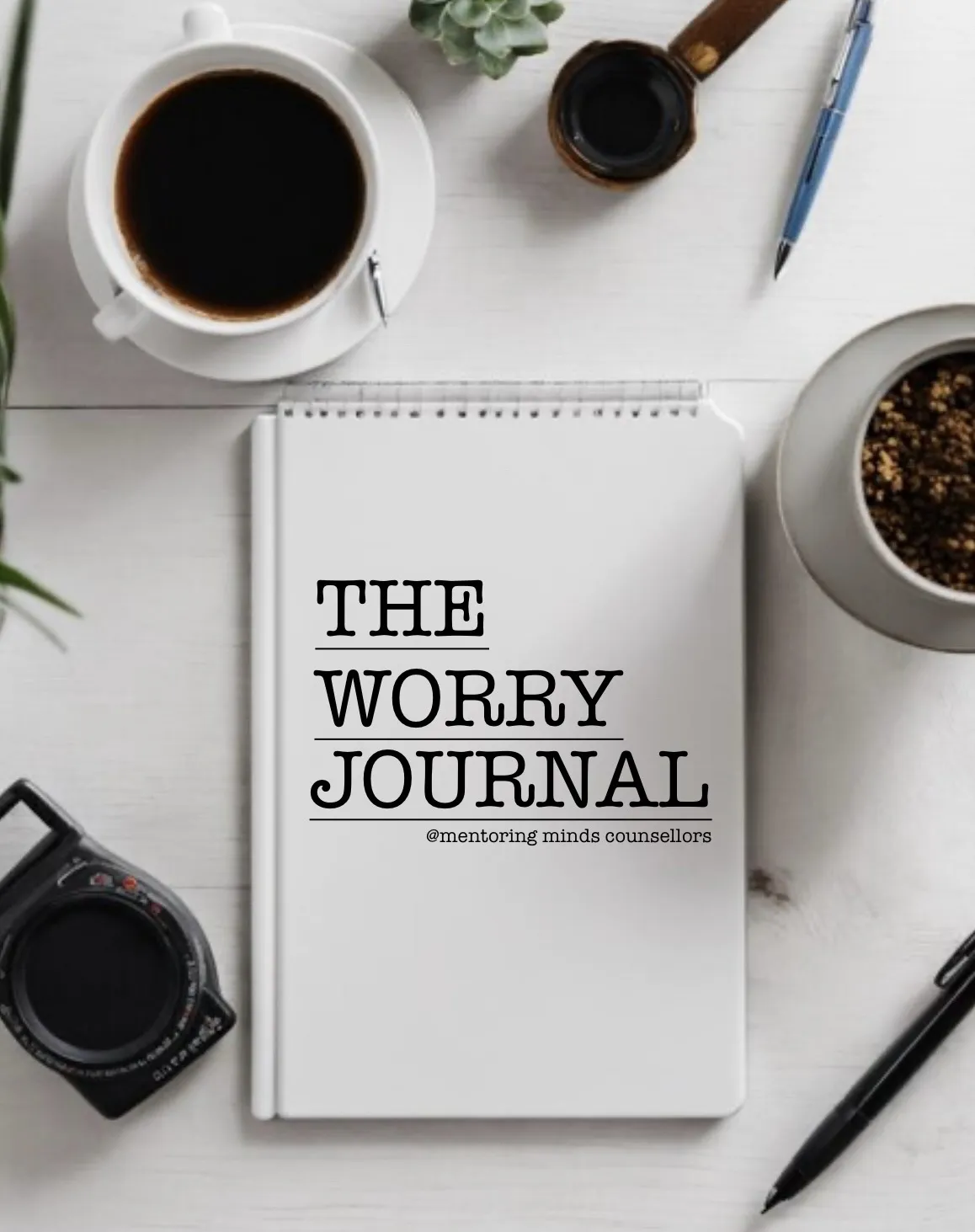What is a Worry Journal and How to Write One?
In a world filled with endless responsibilities, social pressures, and the constant swirl of thoughts, it’s easy to get caught up in worrying. The good news is, there’s a simple yet powerful tool that can help manage anxiety and organize those chaotic thoughts: the worry journal.
What is a Worry Journal?
A worry journal is exactly what it sounds like a space where you can write down all your worries. It’s a safe, non-judgmental place for you to vent, unpack, and confront your concerns. The goal isn’t just to document your fears but to release them, gain perspective, and eventually lessen their grip on you. Essentially, a worry journal allows you to put your thoughts on paper, which can make them feel more manageable and less overwhelming.
It’s a way to separate your worries from your mind, where they can fester and grow, and put them down where you can see them objectively. This practice helps you confront irrational fears, organize your thoughts, and often see just how manageable your concerns really are.
Why Should You Write a Worry Journal?
- Clarity and Perspective: Sometimes, just writing down your worries helps you see them in a new light. What seemed like a big problem in your mind might not look as daunting on paper.
- Emotional Release: Journaling can be a cathartic process. Writing out your feelings can help you release pent-up emotions and make it easier to process them.
- Manage Anxiety: Studies show that journaling helps reduce anxiety by creating an outlet for your emotions and helping you work through your thoughts.
- Improved Focus: By emptying your mind of worries, you can concentrate better on what matters in the present moment, rather than being stuck in a loop of anxious thoughts.
How to Write a Worry Journal
Now that you know what a worry journal is and why it’s helpful, let’s dive into how to write one. The beauty of a worry journal is its flexibility. You don’t have to follow a strict format, but here are some ideas to get you started:
- Set the Scene: Choose a quiet spot where you can write without distractions. Whether it’s early in the morning with a cup of coffee or before bed, setting a peaceful environment can help you connect more deeply with your thoughts.
- Write Your Worries: Start by jotting down whatever is weighing on you. Don’t hold back write it all out, even if it seems small or silly. The point is to get everything out of your head.
- Dig Deeper: Sometimes just writing a surface level worry isn’t enough to uncover the root cause. Ask yourself: Why am I worried about this? What is the worst case scenario? Could this fear be exaggerated? Digging deeper can help you identify what’s truly bothering you and challenge negative thought patterns.
- Reframe the Worry: After writing about your concern, try to reframe it. What’s the most realistic outcome? Is there anything you can control about the situation? Reframing helps you shift from a place of fear to a mindset of problem-solving and acceptance.
- Write a Plan or Action Steps: If your worry involves something you can take action on, write down any steps you can take to address the situation. Having a concrete plan can make you feel more empowered and less overwhelmed.
- End on a Positive Note: Before closing your journal, write something positive. It can be anything from a simple affirmation to a gratitude list or a reminder of your strengths. This helps you leave the session with a more balanced and hopeful mindset.
- Review Regularly: Occasionally, look back at your past entries. This can help you see patterns in your worries, track progress, and give you perspective on how much you’ve grown or how far you’ve come in addressing your fears.
What are theTips for Consistency?
- Set a Routine: Try to write in your journal at the same time every day or whenever you feel overwhelmed. Consistency is key to building this habit.
- Be Kind to Yourself: Don’t worry about spelling, grammar, or how your writing sounds. This is for your eyes only. Just focus on expressing yourself honestly.
- Don’t Force It: If you can’t think of anything to write, that’s okay! Sometimes, the act of writing itself will bring out the worries you didn’t realize were there.
Final Thoughts
We at Mentoring Minds Counsellors understand that A worry journal is a powerful tool for managing stress and finding peace amidst chaos. By taking the time to write down your worries, reflect on them, and reframe them, you can reduce their power over your life. It’s a way of transforming anxiety from something that controls you to something you can control. Give it a try the simple act of writing can create space for calm and clarity in your busy mind.


Leave a Comment